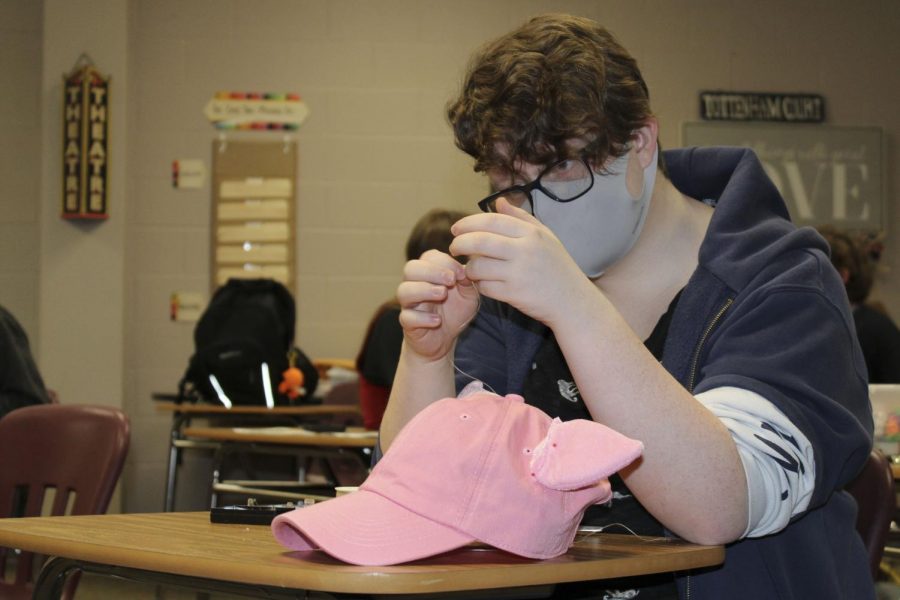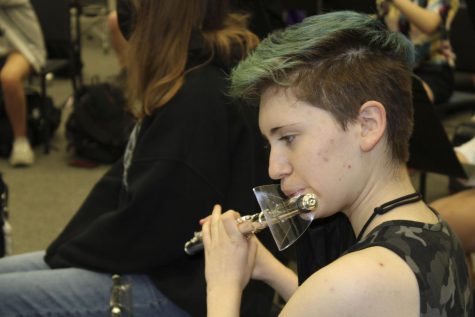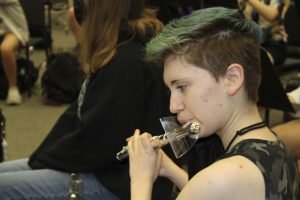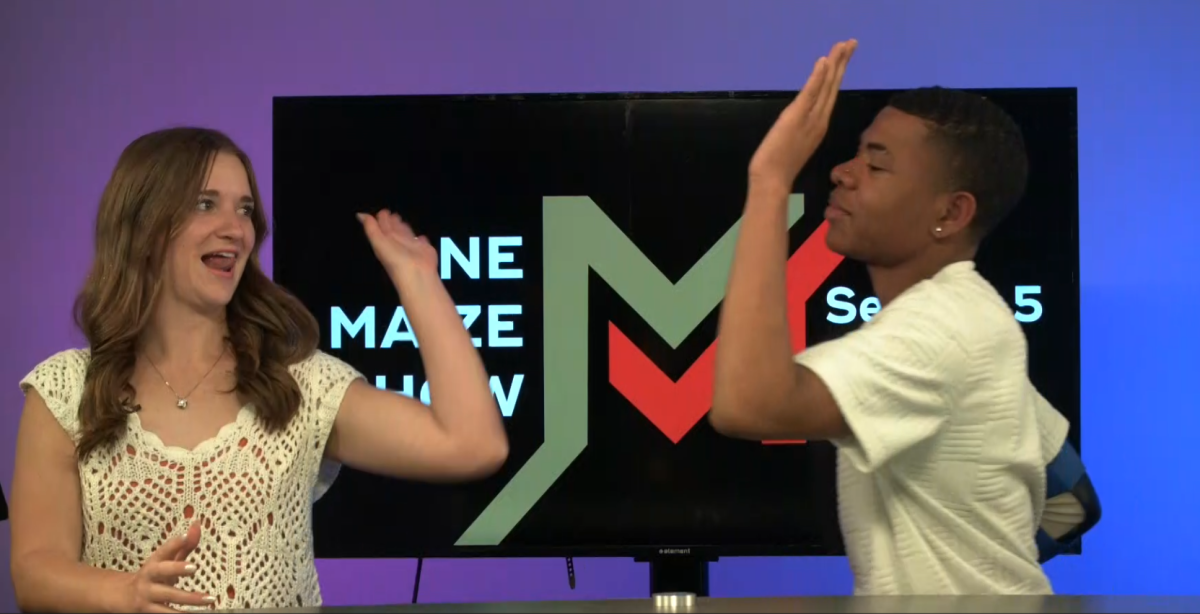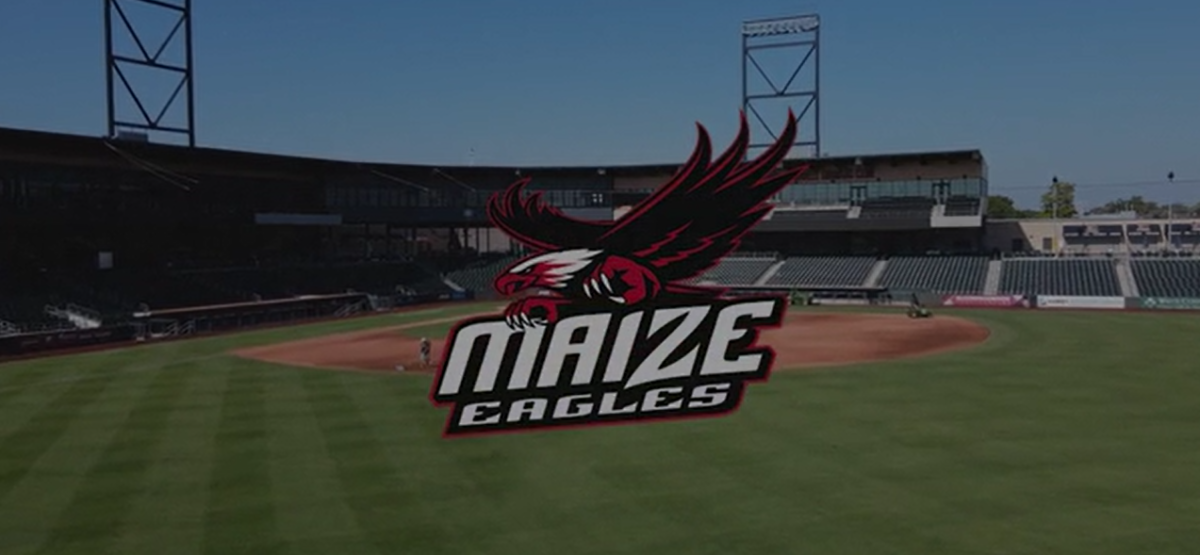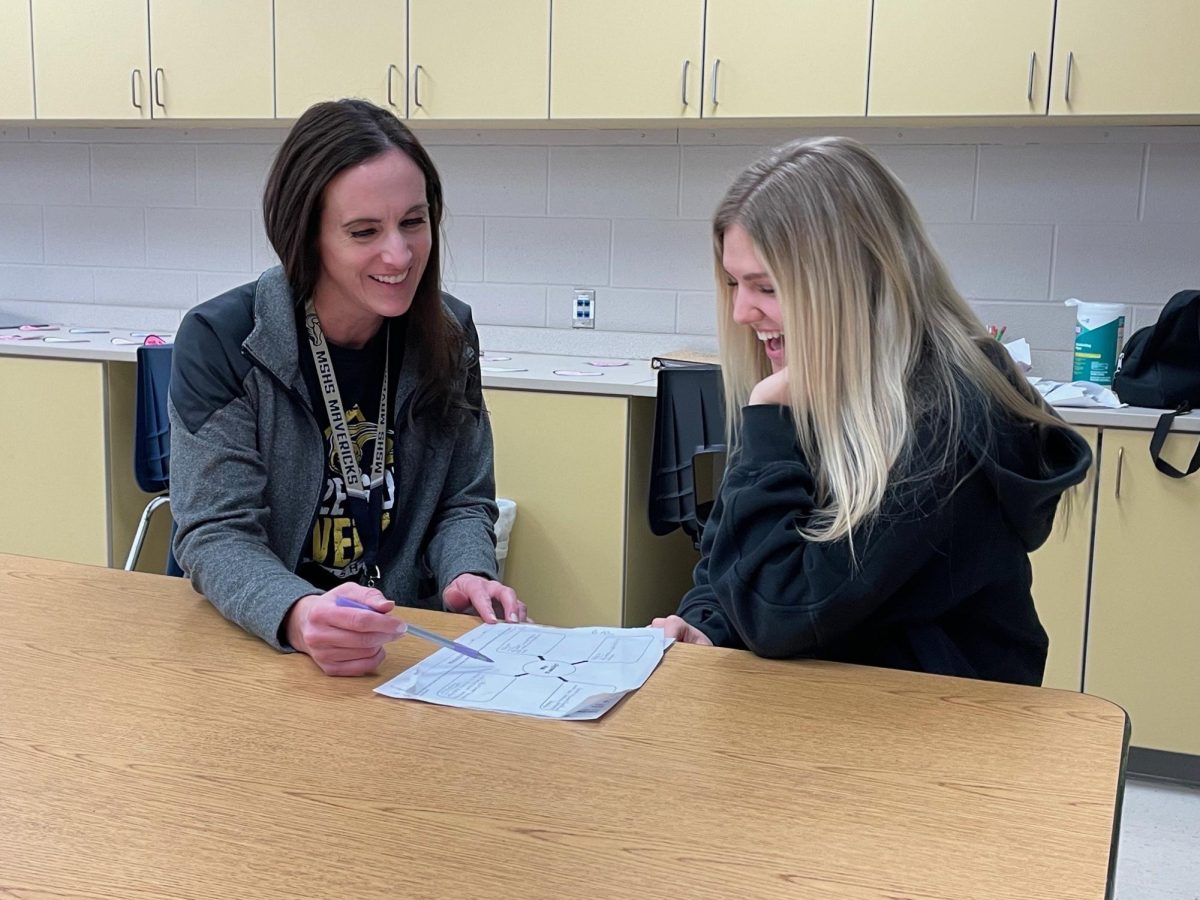The Search for Acceptance; Berit
“What you wear, or how you talk is not based on who you are as a person, and these stereotypes that we put on people are mainly just harmful. – Berit Hazleton
April 28, 2021
Senior Berit Hazleton identifies as queer and non-binary. Queer meaning that they don’t fall under any one sexual orientation, and non-binary meaning that they don’t identify as a boy nor a girl.
For Hazleton, playing the role as someone else to appease others has proven difficult.
“I’m very open about being non-binary. I mean, I go by, they/them pronouns. I kind of have to be, I have to like tell people, I got really done with hiding it. It’s exhausting going somewhere. No, you have to hide it, and pretending to be someone you’re not hurts you as a person. So I stopped doing that around sophomore year,” said Hazleton.
Hazleton faced many instances of bullying from both students and teachers at their old school due to their identity, which caused them to be hesitant to come out here.
“I came out when I was in eighth grade in Texas, which was not a good idea, but after I came out and I originally came out as bisexual, and then a few years, like a year or two later, I was like, no, but, people would stop working with me on projects,” said Hazleton.” I was beaten up once or twice by the football team because they thought it was funny. I would avoid entire places in the school. Like I purposefully not go down hallways. Cause I knew that people would be down there that I wouldn’t be able to go through. So it was a pretty hard time before I moved here.”
“Coming out” here in the Maize community was very different, with teachers and students being far more supportive.
“The second time I came out, which was here, I actually came out because Mr. Rice, my English teacher, the first day of school asked if anyone had any pronouns and I was just like, yeah, me and that was the first time I’d ever like, said it out loud, and I started going completely by they/them pronouns.”
They began to feel more welcome and finally started being open about their identity to everybody.
“It was a nice change to be able to just say, yeah, I’m queer. I’m non-binary I go by they/them pronouns, and if you don’t like that, then great. Don’t talk to me, and making that change was a really important step for me to like, accept myself as a person. I got a bunch of different shirts like gender kills my vibe, and I just kind of, I stopped trying to act feminine if that makes any sense.”
While the Maize district might have been mostly supportive, many others in the world are not as accepting of LGBTQ+ beliefs.
“One of the hardest things I had to come to grips with was that because of who I loved and because of what I identified as people were going to look at me differently and people were going to say things to me that weren’t okay, and it took me a really long time to admit that that was okay because in the end that’s their decision and that’s their choice to act like that,” said Hazleton.
According to Hazleton, an important thing to remember is that you pick who you are. You shouldn’t rush to figure out what you identify as.
“If you think somebody isn’t going to accept you and that’s hard and it’s really hard because my parents didn’t accept me right away. It took them a little bit,” said Hazleton.“ But it takes time for people to come to terms with stuff. So give yourself that time because yeah, if you come up before you’re ready, I’m telling you now you’re gonna suffer from it.”

